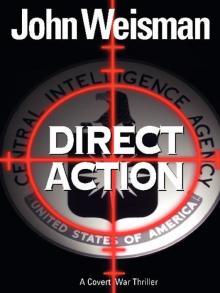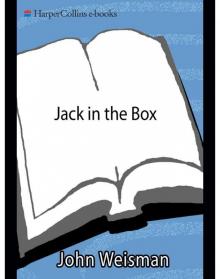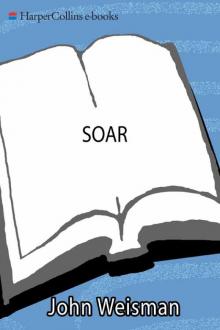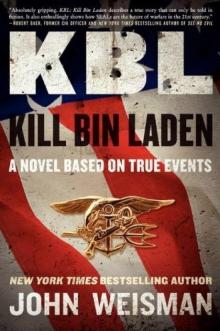KBL Read online
A NOVEL BASED ON TRUE EVENTS
JOHN WEISMAN
Contents
Cover
Title Page
Maps and Illustrations
Dedication
Epigraph
Prologue
PART ONE
Chapter 1
Chapter 2
Chapter 3
Chapter 4
Chapter 5
Chapter 6
Chapter 7
Chapter 8
Chapter 9
PART TWO
Chapter 10
Chapter 11
Chapter 12
Chapter 13
Chapter 14
Chapter 15
Chapter 16
Chapter 17
Chapter 18
Chapter 19
Chapter 20
Chapter 21
Chapter 22
Chapter 23
Chapter 24
Chapter 25
Chapter 26
Chapter 27
Chapter 28
PART THREE
Chapter 29
Chapter 30
Chapter 31
Chapter 32
Chapter 33
Chapter 34
Chapter 35
Chapter 36
Chapter 37
Chapter 38
Chapter 39
Chapter 40
Chapter 41
Chapter 42
Chapter 43
Chapter 44
Chapter 45
Chapter 46
Chapter 47
Chapter 48
Chapter 49
Chapter 50
Chapter 51
Epilogue
Acknowledgments
About the Author
Author’s Note
Other Works
Copyright
About the Publisher
Maps and Illustrations
PAKISTAN
COURTESY OF THE DEPARTMENT OF DEFENSE
ABBOTTABAD COMPOUND, 2005
COURTESY OF THE DEPARTMENT OF DEFENSE
ABBOTTABAD COMPOUND
COURTESY OF THE DEPARTMENT OF DEFENSE
ABBOTTABAD COMPOUND, 2011
COURTESY OF THE DEPARTMENT OF DEFENSE
ILLUSTRATION OF ABBOTTABAD COMPOUND
COURTESY OF THE DEPARTMENT OF DEFENSE
Dedication
To the Warriors Past, Present & Future,
Both in and out of uniform,
Who let us sleep safe in our beds;
To all those Warriors, covert, overt, and K-9 too, who have
paid the ultimate price
To protect our Constitution and our Liberty;
To the memory of Lieutenant Commander (SEAL)
Roy Henry Boehm, USN (Ret.),
Who would have given his left you-know-what to be a part of
this operation;
And, to Deb, who keeps me whole.
Epigraph
The only easy day was yesterday.
—U.S. Navy SEAL motto
Prologue
The retired Airborne Ranger stepped up to the body bag on the plowed wheat field just as the two young SEALs were about to load it into the big enabler helo. He put his arm up like a traffic cop and shouted over the whine of the big twin idling Lycoming jet engines, “Hey, dude, lemme see him quick.”
“For sure, bro.” The SEALs lowered the bag back onto the deck, and the baby-faced one unzipped it from the top. The Ranger hit the button on his green-lensed Surefire and peered down. It was him, all right, even though the face was distorted. Bullets tend to do that. Especially Barnes 70-grain TSX fired at a distance of under fifteen feet.
One round had hit just above the left eye. His head must have been turned toward the shooter because it exited out behind the right ear, taking a fair amount of skull and brain matter with it. Between the green light and the Ranger’s night-vision equipment, the blood and brain goo registered black. But that wasn’t all. The shock and kinetic energy had ballooned the head itself so it looked almost hydrocephalic.
Nasty stuff, those hand-loads.
Even in the green light the Ranger could see that the corpse’s unkempt scraggly beard and kinky hair had turned mostly gray. So the sonofabitch had dyed his hair to make all those videos. That brought a smile to the Ranger’s face. He thought, Wonder what it says in the Quran about using Just for Jihadis.
He reached down, which took some effort, and pulled the zipper to waist level.
Whoa, Crankshaft’d taken a wholesome burst dead-center mass. Four, maybe five, maybe more rounds. Turned most of his chest cavity into squishy, bloody-colored jelly. Faint fecal scent told the Ranger maybe they’d even nicked the colon.
No way Washington was going to admit to any of that. The Ranger made himself a bet that the official report would read something to the effect of one round to the chest and one round to the head. After all, we wear the White Hats. Turning the architect of 9/11 into hamburger? That would be worse than politically incorrect. It would be . . . inhuman.
Still, the sight brought a smile to his face. The kids did good today. No embarrassing arm or leg wounds.
A clean kill.
The best kind. Next to a dirty kill, that is. The Ranger, he knew all about dirty kills.
He turned toward the young SEAL. Shouted above the jet whine, “He say anything?”
The kid shook his head. “Not a word. Sank like a sack of you-know-what.”
The other SEAL adjusted the sling on his suppressed short-barreled rifle as the Ranger hitched up his long, baggy trousers, trousers that covered a quarter-million-dollars’ worth of prosthetic legs. The SEAL pointed. “Where’d you lose ’em?”
The Ranger pulled the Velcro tighter on the vest and body armor he’d been given. It was way too big. He’d lost twenty, twenty-five pounds in the past half year. “Iraq.”
“When?”
“Oh-four.”
“When?”
The Ranger used his hands to reinforce the message. “Zero-four!”
The SEAL caught sight of the Ranger’s ruined hands. His expression showed respect. He pointed at the prosthetics. “How they work?”
“Pretty good. They’re low mileage, though. Tell you in about ten years and fifty thousand miles.” The Ranger gestured toward the women and children, all flexicuffed and sitting against the compound’s outer wall atop a clump of wild cannabis. “What are they gonna do with them?”
“Leave ’em here for the Pakis.”
The Ranger nodded his head approvingly. “Way it should be.”
He pivoted the flashlight to illuminate his way toward the chopper’s lowered ramp and half-turned.
Then turned back. “Nice work,” he told the SEALs. “Bravo Zulu. Now, go put him on board.”
1
Abbottabad, Pakistan
December 5, 2010, 0821 Hours Local Time
The beggar was nervous. You couldn’t tell by looking, but he was. Still, he maintained his rounds. He wheeled himself onto the short street just off Narian Link Road right after morning prayers at the Sakoon Mosque. The shops were opening. He made his way up to the sidewalk tables in front of the tearoom, just the way he always did.
He smiled “Good morning, brother” through broken, stained teeth at Waseem, the tearoom proprietor, and accepted gratefully the tiny cup of sweet, dark, steaming brew that Waseem offered him whenever he showed up, sometimes in the morning, sometimes later.
Waseem rubbed his balding head. He admired the beggar. After all, the beggar was mujahidin—he was even aptly named Shahid—a fighter who had lost both his legs and most of four of his fingers when the detested Americans had hit his Waziristan compound with a missile from one of their armed Predator unmanned aerial vehicles that killed Musl
ims without regard to their guilt or innocence.
Shahid had come to Abbottabad a little over a month ago. From Peshawar, he’d said, and before that Waziristan. On his way to Islamabad. It wasn’t far. Maybe he’d get there someday, God willing, to collect the money he was owed by the government, those Westernized thieves.
Judging from the rough Urdu-tinged accent, Waseem figured the beggar was originally from up north, the rugged, harsh mountains close to the Afghan border. Someplace like Drosh or Chitral. Places the government—Waseem considered the president and most of the government bureaucrats in Islamabad to be puppets of the detested Americans—was afraid to go.
They grew them tough up there in the northwest. Thin-air Jihadis who could carry sixty, seventy kilos on their backs all day, humping up and down the passes like mountain sheep. God’s warriors, who extracted a good price from the Infidels. And sometimes paid one, too.
“A sweet, Brother Shahid?” Waseem always asked. You didn’t want to offend someone who’d put his life on the line defending Islam against evildoers.
The beggar set down the two lengths of wood he used to push the padded furniture dolly on which he traveled. “God bless you, Brother Waseem.”
“And you, Brother Shahid.” Waseem excused himself and returned almost immediately with a pastry dripping honey sitting on a small rectangle of thin waxed tissue. He stood there in his shirtsleeves, pulled a well-used handkerchief out of his rear pocket, and wiped his forehead as if it were summer as he watched the beggar stuff the treat into his mouth with ruined finger stubs, then wipe his lips with a ragged tunic sleeve.
“Are you well?”
The beggar shrugged and sipped tea. “As well I can be, thanks to God.” He emptied the cup and, using both hands, offered it back to Waseem. The beggar looked around conspiratorially. “There were strangers here yesterday. I saw them by the Bibi Amna Mosque.”
“Yes,” Waseem nodded. “Four of them in Army uniforms. Captains. From Islamabad, I think.” He paused. “Visiting the Military Academy, from the look of them.”
“God be praised.” The beggar picked up his sticks. “I always wanted to go to military school.” He tapped his rag-wrapped stumps with one of them. “But God had other uses for me.”
“God be praised.”
The beggar sighed. “God be praised.” And then he swiveled, pushed off, and foot by foot wheeled himself down the street to the corner by the Iqbal Market, where he sat for an hour, sometimes more, his back up against the wall, his wooden bowl in front of him, collecting alms—and intelligence.
It was the strangers who’d snagged the beggar’s tripwire. Made him more than slightly nervous.
They were Pashto-speakers. Accents? Islamabad, the beggar thought. Maybe. Nah—better than maybe. But officers visiting the Pakistan Military Academy? No fricking way. These guys didn’t walk or talk like soldiers. They were Intel professionals. They reeked ISI, Pakistan’s Inter-Services Intelligence. And it was well known to the beggar that significant elements of ISI were sympathetic to al-Qaeda and the Taliban.
Moreover, operating under military cover was a common ISI tactic. In 2008 and 2009, some of the top-tier International Security Assistance Force (ISAF) units in Afghanistan, units that hunted for HVTs—high-value targets, in militaryspeak—operated with Pakistani “military observers” embedded.
Except the embeds hadn’t been military. They’d been ISI officers in uniform, and they reported back to Islamabad on the HVT hunters’ sources, methods, and tactics.
And guess what? Shortly thereafter, HVTs in Afghanistan began to change their tactics and methods. And shortly after that, not a few of the sources who had led American forces to those HVTs were abducted, tortured, and murdered.
More to the point, the beggar had eyeballed these guys, and they’d been looking. Surveiling. Eliciting. Searching for an anomaly in this garrison city of thirty-five thousand souls.
Hunting for something specific.
And the beggar, whose Infidel name was Charlie Becker and whose legs and fingers had been blown off on Father’s Day 2004 by an al-Qaeda in Iraq suicide bomber just outside the city of Mahmudiya, and who currently occupied a GS-15, Step 10, slot at SAD, the Special Activities Division of the Central Intelligence Agency, knew exactly what anomaly yesterday’s strangers had been seeking.
They were looking for a CIA safe house. A safe house that had been set up just about two months ago. A safe house that had been rented from an unsuspecting owner by false-flag recruited, anti-American Pakistanis who thought they were working for the Haqqani Network, a violent Afghani militia based in Pakistan’s North Waziristan, where they ran training camps for foreign terrorists.
In point of fact, however, the hoodwinked Paks had rented the property on behalf of their—and the Haqqanis’—sworn enemy: America’s Central Intelligence Agency.
Which then filled it with several million dollars’ worth of high-tech eavesdropping and communications equipment, which was covertly, painstakingly, meticulously shipped in and set up, piece by piece by piece.
This was Valhalla Base, the safe house for which it was Charlie’s job to provide countersurveillance and thus protection.
Charlie Becker, a retired U.S. Army Airborne Ranger master sergeant, had spent just over five and a half years in rehab after what he called “the nasty Iraqi incident.” And since he had an innate talent for language, and since he had no intention of not working for a living or writing a tell-all book or getting by on a disability pension, and since he was someone who believed in the credo “Don’t get mad, don’t get even: get ahead,” he’d spent that time prepping his mind as well as his body, learning the languages his enemies spoke.
Learning to speak them like a native.
He was currently fluent in Urdu and Pashto, and his Arabic wasn’t bad either. Since January 2009 he’d spent most of his time down at Guantánamo working interrogations. He’d volunteered for Gitmo because it was the best way, he argued, to get his language skills where he wanted them. The best way, he harangued, to discuss Quranic law in Pashto and Urdu and get the damn phrases right. The best way, he knew right down to the marrow in his bones, to learn how to pass.
Charlie was no fool. He had discovered in Iraq that he could pass for Egyptian or Syrian. Until, that was, he opened his mouth. But now? Now he had all the tools.
And when he learned that CIA had got this . . . thing going in Abbottabad, he’d volunteered to play lonesome end and watch his comrades’ backs.
So he’d left his prostheses in his Special Activities Division locker, set up in Camp Alpha, the secure compound in a far corner of Bagram Air Base in Afghanistan. The selfsame Camp Alpha compound that sat safely behind four layers of three-meter fence topped by concertina wire, patrolled by K-9 security teams, and backstopped with a sensor system that cost more than Bill Gates and Warren Buffett made in a year, plus bonuses, combined.
It was the compound where, inside a hangar with a shielded roof that couldn’t be seen by any loitering ISAF unmanned aerial vehicle or penetrated by Russkie or Chinese infrared or thermal-capable satellites, a hangar large enough to store three C-17 Globemaster-IIIs, the CIA was keeping some nasty little surprises for its most bodaciously, successfully reclusive HVTs.
Knowing what was going on inside that hangar and getting a peek at the items therein had been hugely motivational for Charlie Becker.
Which was why for six weeks he lived outside the hangar in the same clothes he was wearing now, with nothing but the cardboard shelter he’d constructed himself to shield him from the elements, and consuming the same seasoned lentil stew, roti flat bread, and sweet tea diet consumed by most poor Pakistanis. He bathed only occasionally, except for his stumps and hands, which he washed religiously before dawn, morning, noon, afternoon, and evening prayers, prayers he recited with the passion of the Salafist Jihadi into which he was metamorphosing.

 Direct Action
Direct Action Jack in the Box
Jack in the Box Soar
Soar KBL
KBL